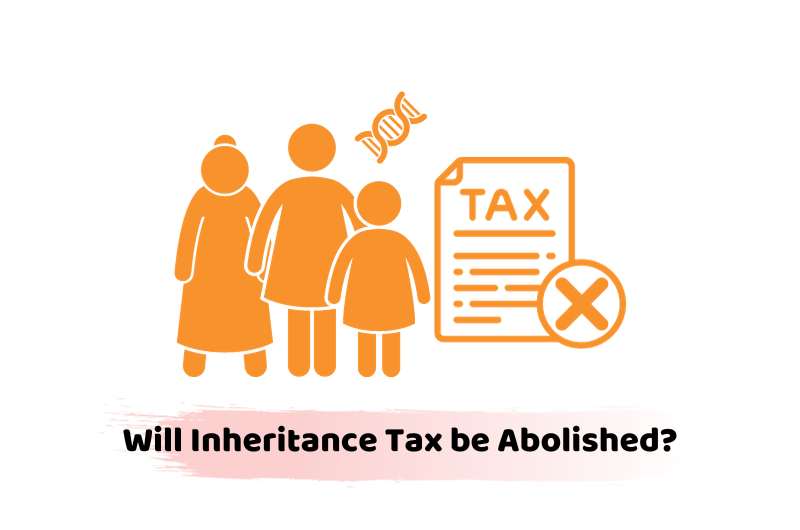Will inheritance tax be abolished, is a kind of question that sparks a lot of debates and differing opinions. On one hand, some argue for its abolition, emphasising the importance of personal freedom and the ability to pass on wealth without facing hefty tax burdens. On the other hand, proponents of inheritance tax believe it plays a crucial role in reducing wealth inequality and funding public services.
Finding the right balance between these perspectives is no easy task. It requires a careful examination of the economic, social, and political implications associated with abolishing such a tax. So, buckle up, as we explore the complexities of this ongoing discussion.
Get in touch with one of our professionals to learn more about will the inheritance tax be abolished. We will love to hear out your queries and provide instant solutions.
What is an Inheritance Tax?
An inheritance tax is a tax that is levied on the estate (property, money, and possessions) of someone who has passed away. However, if the estate value exceeds the threshold, the excess amount is subject to taxation at a rate of 40%. Now, it’s important to note that there are certain exemptions and reliefs that can reduce or eliminate the inheritance tax liability.
For example, if the deceased person leaves their estate to their spouse or civil partner, it is generally exempt from inheritance tax. You should also know that there are rules around gifts given before someone passes away, as these can still be subject to inheritance tax within a certain timeframe. Keep in mind that inheritance tax can be quite complex.
Who Pays Inheritance Tax?
There are specific rules and provisions that may apply to certain types of assets, such as business or agricultural property. It’s always a good idea to consult with a professional advisor or refer to the official guidance from HM Revenue and Customs (HMRC) for the most accurate and up-to-date information on who is liable to pay inheritance tax in the UK.
How Might the Government Reform Inheritance Tax?
The UK government can reform inheritance tax by implementing changes to the existing legislation and regulations. They may adjust the thresholds and rates for inheritance tax, introduce new exemptions or reliefs, or simplify the process of estate planning.
Reforms can also involve consultations with experts and the public to gather feedback and consider different perspectives. The government’s aim is to ensure that the inheritance tax system is fair, efficient, and aligned with the priorities and needs of society. Specific details on these reforms would require a more in-depth analysis of the current policies and any proposed changes.
Why Inheritance Tax is Expected to be Abolished?
First and foremost, it would allow individuals to pass on their wealth to their loved ones without the burden of a hefty tax. Additionally, the elimination of inheritance tax could incentivise individuals to save and invest more, as they know their hard-earned assets will be passed on to their chosen beneficiaries.
It may also reduce administrative complexities and costs associated with the tax, making estate planning and management simpler for families. However, it’s important to consider the potential impact on government revenue and the need for alternative sources of funding public services. It’s a complex issue and opinions on the matter may vary, but these are some of the potential benefits that could come with abolishing inheritance tax.
Why is the Change Needed?
There are several reasons why individuals and groups advocate for reforms or even the abolition of this tax. Some argue that inheritance tax is seen as a form of double taxation, as the assets being passed on have already been subject to various taxes during the individual’s lifetime. Others believe that it can disincentivise entrepreneurship and wealth creation, as individuals may be deterred from investing and growing their assets due to the potential tax implications for their beneficiaries.
Additionally, some argue that the tax can be complex and burdensome to navigate, requiring professional assistance, which adds to the cost and complexity of estate planning. However, it’s important to consider a variety of perspectives on this matter, as there are also arguments in favour of retaining inheritance tax to ensure fairness and contribute to public revenue. The need for change in this regard stems from differing opinions on the impact, efficiency, and fairness of the tax system surrounding inheritance in the UK.
The Bottom Line
To sum up the discussion about will the inheritance tax be abolished, we can say that while some individuals argue that the tax should be completely abolished to provide greater freedom to pass on wealth, others believe that it serves an important purpose in promoting social equality and funding public services. Abolishing inheritance tax could have significant implications on government revenue and may require alternative methods of taxation to make up for the loss.
It’s a complex and multifaceted issue that involves careful consideration of economic, social, and political factors. Ultimately, any decision regarding the abolition of inheritance tax would require thorough analysis and thorough examination of its potential impact on society as a whole. We hope these few minutes of reading will help you to develop a better understanding.
Call or request a callback to speak to one of our professionals to discuss your queries about will the inheritance tax be abolished. We are available from 9:00 am – 05:30 pm Monday to Friday.
Disclaimer: All the information provided in this article on will the inheritance tax be abolished, including all the texts and graphics, is general in nature. It does not intend to disregard any of the professional advice.





















































